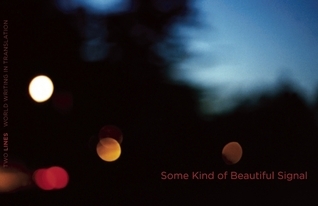What do you think?
Rate this book


317 pages, Paperback
First published November 1, 2010
myself: as if dethroned! by him as: if it had all
turned now am: scented, am stalked--fully: quarry my
sweat--rush: through branches, through brushwood from him
they: light into grab hook whipping--swifter--
my flanks eyes--no--(..) know: i must go through must
make it--at once--to the river, river--
Dhaulagiri
Seeing Mount Dhaulagiri
I was reminded of its picture,
As I’d seen the picture first.
Among the pictures in my house
Are portraits of my ancestors.
I haven’t seen my ancestors
So whenever I think of them
It’s their portraits I think of.
But not after seeing Dhaulagiri.
Now it’s the ancestors who come to mind
And not their likenesses.